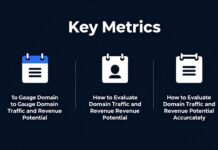What do domain brokers actually do? This question sparks curiosity for many who are venturing into the world of domain investing or seeking the perfect domain name for their business. In this article, we will unveil the secrets behind domain brokers, revealing how they operate and the invaluable services they provide. Whether you’re a seasoned investor or a newcomer, understanding the role of these professionals could significantly impact your digital journey.
Domain brokers serve as intermediaries, assisting clients in buying and selling domain names. They possess a wealth of knowledge about domain valuation, negotiation tactics, and market trends, which makes them indispensable in the often complex realm of domain transactions. But what exactly do they do? They conduct thorough research to identify the best domain opportunities, negotiate deals on behalf of their clients, and provide insights into the domain name market.
Are you wondering if hiring a domain broker is worth it? The answer is a resounding yes for many individuals and businesses! With their expertise, you can save time and avoid the pitfalls of navigating the domain market alone. In the following sections, we will dive deeper into the services offered by domain brokers, the benefits of working with them, and tips on how to choose the right one for your needs. So, keep reading to discover how these professionals can help you secure the perfect domain name, boost your online presence, and ultimately enhance your brand’s visibility. Don’t miss out on the chance to learn more about this intriguing niche!
The Hidden Role of Domain Brokers: How They Navigate the Digital Marketplace for You
In today’s digital landscape, the role of domain brokers often goes unnoticed, yet they are essential players in the online marketplace. Many people ask, what do domain brokers actually do? This question is more complex than it seems, and it carries implications for anyone looking to buy or sell a domain. Understanding the hidden role of these professionals can help you navigate the digital realm much more effectively.
What is a Domain Broker?
A domain broker is a professional who acts as an intermediary between buyers and sellers of domain names. They help negotiate deals, provide market insights, and can often facilitate transactions that might be challenging for individuals to handle on their own. Their expertise in the market helps streamline the buying and selling process, which can be extremely valuable for businesses and individuals alike.
The Secret Sauce: How Domain Brokers Operate
Domain brokers do several things that often remain behind the scenes. Here are some key functions of their roles:
Market Research: They analyze market trends and domain name valuations. This means they know what domains are worth and can advise clients on realistic pricing.
Negotiation: Brokers negotiate on behalf of their clients, often using their experience to get better deals. This is particularly helpful in competitive situations where multiple buyers may be interested in the same domain.
Privacy Protection: When a seller wants to keep their identity private, brokers can act as a shield. They handle communications and transactions without revealing the seller’s personal information.
Legal Guidance: They can provide crucial insights into the legal aspects of domain transactions, helping clients avoid pitfalls.
Closing Transactions: Once terms are agreed upon, brokers manage the paperwork and payment process, ensuring everything is completed correctly and efficiently.
Comparing DIY vs. Hiring a Broker
Many individuals wonder whether they should attempt to buy or sell a domain name themselves or hire a broker. Here’s a comparison to help you decide:
| Aspect | DIY Approach | Using a Domain Broker |
|---|---|---|
| Time | Can be time-consuming | Saves time and effort |
| Market Knowledge | Limited knowledge | In-depth market insights |
| Negotiation Skills | May lack experience | Expert negotiators |
| Privacy | Limited privacy protection | Enhanced privacy |
| Legal Advice | Minimal legal guidance | Legal expertise |
The Historical Context of Domain Brokering
Domain brokering has evolved significantly since the inception of the internet. In the early days, domain registration was straightforward, and many individuals registered domains without much thought. However, as the internet grew, so did the value of certain domain names. The first domain brokerages emerged in the late 1990s, as more people recognized the potential for profit in buying and selling domains. Today, the domain marketplace is a billion-dollar industry, with brokers playing a crucial role in its functioning.
Real-Life Examples of Domain Brokering Success
Business Acquisition: A startup wanted a specific domain that was owned by a private individual. They hired a broker who managed to negotiate a purchase price that was significantly lower than what the owner initially wanted. The startup launched its website with the perfect domain, thanks to the broker’s skills.
Brand Protection: A well-known brand discovered that a similar domain was registered by a competitor. They engaged a broker who successfully acquired the domain, preventing potential brand confusion.
Investment Opportunities: An investor wanted to buy undervalued domains to resell them later. The broker provided a list of high-potential domains and helped negotiate deals that resulted in substantial profits for the investor.
Key Considerations When Choosing a Domain Broker
When seeking a domain broker, it’s essential to consider the following factors:
Experience: Look for brokers with a solid track record and years of experience in the industry.
Reputation: Check reviews and testimonials from past clients to gauge their reliability.
Fee Structure: Understand how they charge—some may take a commission, while others may have flat fees.
Services Offered: Ensure they provide the services you need, whether it’s negotiation, legal advice, or market analysis.
Navigating the digital marketplace can be daunting, but with the help of a skilled domain broker, the process becomes much simpler. They are the unsung heroes of the domain world, using their expertise to secure valuable assets for their clients. If you’re looking to buy or sell a domain, consider reaching out to a broker and discover how they can assist you in achieving your digital goals.
7 Key Strategies Domain Brokers Use to Secure Premium Domains at the Best Prices
In the bustling world of online business, premium domains can be the key to success. But how do domain brokers, those unsung heroes of the internet, manage to secure these sought-after names at prices that often seem like a steal? What do domain brokers actually do? It might surprise you to learn that their work is as complex as it is fascinating. Let’s unveil their secrets and explore 7 key strategies domain brokers use to negotiate the best deals.
Understanding the Role of Domain Brokers
Domain brokers are the intermediaries in the world of domain name transactions. They connect buyers and sellers, helping both parties navigate the often tricky waters of domain acquisition. But their role is much more than just a middleman. Here are some of the key responsibilities they typically handle:
- Valuation Expertise: They assess the value of domains based on various factors like length, keyword popularity, and market trends.
- Negotiation Skills: Brokers negotiate on behalf of buyers to get the best possible price for premium domains.
- Market Knowledge: They keep a pulse on the domain market, understanding what’s in demand and who’s willing to sell.
- Client Representation: Brokers represent their clients’ interests, ensuring that they get the best deal without any hidden fees.
- Due Diligence: They perform thorough checks to ensure that the domain is free of legal issues or pending disputes.
7 Key Strategies Domain Brokers Use
Building Relationships: One of the most important strategies is building strong relationships with domain sellers. Brokers often spend time cultivating trust, which can lead to better deals. It’s all about who you know in this business.
Understanding Market Trends: Brokers keep themselves updated on market trends. They know when to buy or sell based on fluctuations in demand. For example, they might notice an uptick in interest for “.tech” domains and act quickly.
Utilizing SEO Knowledge: A good broker understands search engine optimization (SEO). They look for domains that not only sound good but also have the potential to rank well in search engines. This knowledge helps them secure domains that offer long-term value.
Offering Payment Plans: To sweeten the deal, brokers might propose payment plans for expensive domains. This can make it easier for buyers to commit to a purchase, resulting in a win-win situation.
Creating Scarcity: Brokers often create a sense of urgency around a domain by highlighting its potential value or how many other interested parties there are. This tactic can incentivize buyers to act quickly.
Leveraging Brokerage Platforms: Many brokers use established platforms to showcase domains. These platforms often have built-in audiences, increasing the chances of a sale. They can list domains with clear descriptions and appealing visuals.
Conducting Market Research: Before making a move, brokers perform extensive research. They analyze comparable sales and market data to determine the right pricing strategy, ensuring they don’t overpay.
What Makes a Good Domain Broker?
When looking for a domain broker, it’s important to know what to look for. Here’s a quick list of qualities that make a broker stand out:
- Experience: A seasoned broker will have a better understanding of the market.
- Reputation: Check reviews and testimonials from past clients.
- Communication Skills: Good brokers are excellent communicators and keep their clients informed throughout the process.
- Negotiation Skills: The ability to negotiate effectively can save clients a lot of money.
Quick Facts About Domain Brokers
- The domain brokerage industry has grown significantly, with more businesses recognizing the importance of a strong online presence.
- Many brokers charge a commission, typically ranging from 10% to 20% of the final sale price.
- Some brokers specialize in specific niches, like tech or real estate, while others have a broader focus.
Frequently Asked Questions
How do I choose a domain broker?
Look for experience, reputation, and good communication. Ask for past success stories.What’s the average cost of hiring a broker?
Commission rates vary widely, but expect to pay between 10-20% of the domain’s sale price.Can brokers help with domain disputes?
Yes, many brokers can assist in resolving disputes, although this is often outside their primary role.
In the end, domain brokers play a crucial role in the digital economy. Their strategies not only help buyers secure premium domains at competitive prices but also contribute to the overall health of the domain marketplace. By understanding their methods and the value they bring, one can appreciate the art and science behind domain brokering. Whether you’re a buyer or a seller, knowing what domain brokers actually do can empower you in your online endeavors.
Are Domain Brokers Worth It? Unpacking the Cost vs. Value Debate for Businesses
In the bustling world of online business, every entrepreneur knows how vital a solid domain name is. It’s like the digital storefront of a business, and picking the right one can mean the difference between success and failure. But when it comes to securing that perfect domain, many business owners wonder, “Are Domain Brokers Worth It?” This question leads us down a rabbit hole of evaluations regarding cost versus value, the actual roles of domain brokers, and more.
What Do Domain Brokers Actually Do? Unveiling Their Secrets
Domain brokers are the middlemen of the domain name industry. They help businesses and individuals acquire the domain names they want, whether those domains are currently registered or available for purchase. But what does that mean in practical terms? Here’s a breakdown:
- Negotiation: Brokers negotiate with current domain owners to get the best price. They often have experience in dealing with sellers, which can be an advantage for buyers.
- Market Insights: They provide valuable insights about the domain market, including trends, pricing, and demand. This info helps buyers make informed decisions.
- Legal Assistance: Some brokers offer legal guidance to ensure that the acquisition process goes smoothly and any potential disputes can be avoided.
- Privacy: Using a broker can help maintain anonymity during negotiations, which can be a big plus for some business owners.
With these services, brokers can save time and effort for busy entrepreneurs who might not have the time to dive deep into the complexities of domain acquisition.
Are Domain Brokers Worth It? The Cost vs. Value Debate
Now, lets’ talk about the elephant in the room: the cost of hiring a domain broker. Fees can vary widely depending on the broker and the complexity of the transaction. Here’s a quick glance at typical costs:
- Flat Fees: Some brokers charge a flat fee, which can range from a few hundred to several thousand dollars.
- Commission-Based Fees: Others work on a commission basis, taking a percentage of the final sale price, usually between 10-20%.
- Additional Costs: There may be additional fees for valuation services, legal assistance, or other extra services.
When weighing these costs against the potential value, it’s important to consider a few factors:
- Time Saved: For many business owners, time is money. A broker can complete a transaction much quicker than an individual might.
- Expertise: Brokers often have a wealth of experience and knowledge, which can lead to better negotiation outcomes.
- Access to Exclusive Domains: Some brokers have access to domains that are not available to the general public, giving clients options they might not find elsewhere.
Pros and Cons of Using a Domain Broker
When deciding whether to hire a domain broker, it helps to look at the pros and cons. Here’s a quick comparison:
Pros:
- Expertise in negotiation and market value
- Time-saving, especially for busy entrepreneurs
- Potential access to exclusive domains
- Legal support during transactions
Cons:
- Costs can be high, especially for small businesses
- Not every broker is equally skilled, so it’s important to choose wisely
- Sometimes brokers may not have the desired domain in their portfolio
Real-Life Examples
To understand the impact of hiring a domain broker, consider a few real-life scenarios:
Startup Secures a Premium Domain: A tech startup wanted a premium domain that was already owned. They hired a broker who negotiated down from $50,000 to $30,000, saving the startup significant money and providing a domain that enhanced their brand’s credibility.
Local Business Expands: A local restaurant aimed to expand its brand online. They used a broker who helped them acquire a related domain for $1,500, which ended up boosting their online presence and attracting more customers.
Final Thoughts
In the end, whether or not domain brokers are worth it depends on the unique needs and circumstances of each business. For some, the cost of hiring a professional to handle the intricacies of domain negotiation and acquisition can be a worthwhile investment. For others, particularly those with limited budgets or who are comfortable navigating the market themselves, it may not make sense. The key is to weigh the potential benefits against the costs and to consider the specific goals of your business. In a digital landscape where a good domain name can open doors, making an informed decision about whether to engage a domain broker can be crucial for your success.
The Insider Secrets of Domain Brokers: What Every Entrepreneur Should Know Before Buying
The domain name industry can be little confusing for entrepreneurs. Many people don’t understand what exactly domain brokers do, or how they can help in purchasing that perfect domain. Understanding the inner workings of domain brokers can save you time, money, and headaches in the long run. So, let’s dive into the insider secrets of domain brokers and what every entrepreneur should know before making a purchase.
What Do Domain Brokers Actually Do?
Domain brokers are intermediaries who help buyers and sellers navigate the domain name marketplace. They often have extensive networks and knowledge of the industry, which can be very helpful for entrepreneurs who may not have the resources or expertise to find the right domain on their own. Here’s a closer look at what they do:
- Research and Valuation: Brokers assess the value of domain names based on factors such as length, keywords, and market trends. This can help you understand whether you’re getting a fair price.
- Negotiation: Experienced brokers negotiate on behalf of the buyer or seller to secure the best possible deal. Their negotiating skills can make a significant difference in the final price.
- Market Insights: Brokers have access to industry data and trends, which allows them to provide valuable insights into what domains are in demand and how to position your offer.
- Confidentiality: They can act on your behalf without revealing your identity, which is often crucial in competitive markets.
Why You Might Need a Domain Broker
There’s several reasons why hiring a domain broker can be beneficial:
- Time-Saving: Searching for the right domain takes time, often more than you think. Brokers do the legwork for you.
- Expertise: They know the ins and outs of the market, which can prevent you from making costly mistakes.
- Access to Premium Domains: Some valuable domains aren’t listed publicly. Brokers have connections that might lead you to hidden gems.
- Complex Transactions: If you’re dealing with high-value or complicated domain transactions, having a broker can streamline the process.
The Costs Involved
Hiring a domain broker isn’t free, and it’s important to understand how they charge for their services. Here’s a breakdown of typical costs:
- Flat Fees: Some brokers charge a flat fee for their services, which can range from $100 to $3,000 depending on the complexity of the deal.
- Commission-Based: Many brokers take a percentage of the final sale price, usually between 10% to 20%. This incentivizes them to get you the best price possible.
- Retainer Fees: Occasionally, a broker might require a retainer fee upfront, especially for high-profile transactions.
Red Flags to Watch Out For
When working with domain brokers, there are some warning signs you should be aware of:
- Lack of Transparency: If a broker isn’t clear about their process or costs, that should raise a flag.
- High Pressure Sales Tactics: Be cautious if a broker pushes you to make a quick decision. Legitimate brokers will give you time to think.
- Unverifiable Testimonials: Always check their credentials and reviews from previous clients. If you can’t find any, it might be best to look elsewhere.
How to Choose the Right Domain Broker
Picking the right broker is key to a successful domain purchase. Consider the following factors:
- Experience: Look for brokers with a proven track record in the industry.
- Specialization: Some brokers specialize in specific niches or types of domains. Make sure their expertise aligns with your needs.
- Reputation: Check online reviews, forums, and ask for references.
- Communication Skills: A good broker should be easy to talk to and responsive to your questions.
Examples of Successful Domain Transactions
Here’s a couple of examples of how domain brokers have successfully helped entrepreneurs:
- Tech Startup: A tech startup wanted a catchy domain but found it was owned by a private individual. They hired a broker who negotiated a purchase price that was 30% lower than the original asking price.
- E-commerce Site: An e-commerce entrepreneur needed a specific keyword-rich domain. Their broker not only found the domain but also facilitated a smooth transfer, saving them weeks of headaches.
Understanding the role of domain brokers and their impact on your domain purchasing process can be a game-changer for your business. They offer a wealth of experience, connections, and negotiation skills that you might not have access to otherwise. So, whether you’re a seasoned entrepreneur or just starting out, consider the benefits of using a domain broker to help you secure that perfect domain name.
Top 5 Mistakes to Avoid When Working with Domain Brokers: Expert Tips for Success
Navigating the world of domain brokerage can be tricky for anyone. Whether you’re a business owner looking to buy the perfect domain name, or somebody wanting to sell a valuable web address for profit, understanding how to effectively work with domain brokers is crucial. This article will shed light on the top 5 mistakes to avoid when working with these professionals, while also unveiling what domain brokers actually do.
What Do Domain Brokers Actually Do?
Before diving into the common pitfalls, let’s clarify the role of domain brokers. These are professionals who specialize in buying and selling domain names. They often act as intermediaries between buyers and sellers, utilizing their expertise to negotiate deals and provide valuable market insights. Here are some of the things they typically do:
- Market Analysis: Brokers evaluate the market conditions to provide accurate pricing for domain names.
- Negotiation: They handle all negotiation processes, ensuring that both parties feel satisfied with the transaction.
- Confidentiality: Brokers maintain confidentiality to protect the interests of both buyers and sellers.
- Marketing: They often market domain names through various channels to reach potential buyers.
- Legal Assistance: Many brokers provide guidance on the legal aspects of domain transfers.
Top 5 Mistakes to Avoid When Working with Domain Brokers
- Not Doing Your Homework
Many buyers and sellers make the mistake of not researching the domain market before engaging with a broker. Understanding current trends and pricing can help you have more informed conversations.
- Look for recent sales of comparable domains.
- Familiarize yourself with domain valuation tools.
- Check out brokerage websites for listings and trends.
- Assuming All Brokers Are the Same
Not every domain broker offers the same level of service or expertise. It’s important to choose one that aligns with your needs. Here’s how to differentiate:
- Experience: Look for brokers who have a proven track record in your niche.
- Specialization: Some brokers focus on specific industries or types of domains.
- Reviews & Testimonials: Check online reviews to gauge their success rate.
- Neglecting Communication
Effective communication is key to any successful partnership. Some people may fail to clearly express their needs or expectations, leading to misunderstandings.
- Be explicit about what you’re looking for.
- Set clear deadlines and milestones.
- Regularly check in to discuss progress.
- Overlooking the Fine Print
When working with brokers, it’s easy to overlook contracts and agreements. Failing to understand the terms can lead to unexpected issues down the line.
- Always read the entire agreement before signing.
- Pay attention to commission fees and payment terms.
- Don’t hesitate to ask questions if something is unclear.
- Rushing the Process
Domain transactions often take time, and rushing can lead to costly mistakes. Buyers and sellers sometimes feel pressured to finalize deals quickly without considering all factors.
- Take the time to evaluate multiple options.
- Don’t settle for the first offer or listing you see.
- Use the broker’s expertise to your advantage and be patient.
Expert Tips for Success
To enhance your experience with domain brokers, consider these additional expert tips:
- Be Prepared: Have your budget and criteria defined before reaching out to a broker.
- Stay Open-Minded: Sometimes, brokers may suggest options outside your initial scope that could be beneficial.
- Follow Trends: Stay updated on the latest trends in domain names, as this can affect both purchasing and selling strategies.
A Quick Recap of Domain Broker Roles
Here’s a simple table summarizing the main roles of domain brokers:
| Role | Description |
|---|---|
| Market Analysis | Evaluates pricing and trends |
| Negotiation | Facilitates discussions between parties |
| Confidentiality | Protects private information |
| Marketing | Promotes domains to potential buyers |
| Legal Assistance | Guides through legalities of transactions |
Mistakes in the domain brokerage realm can lead to financial losses and missed opportunities. By keeping these common pitfalls in mind, you can navigate the process more efficiently and effectively. Understanding what domain brokers do and how to work with them can lead to successful transactions, whether you’re buying or selling. So, take your time, do your research, and communicate openly for the best results.
Conclusion
In conclusion, domain brokers play a pivotal role in the complex world of domain name transactions, acting as intermediaries between buyers and sellers. They leverage their industry expertise, negotiation skills, and extensive networks to facilitate smooth transactions, ensuring that both parties achieve satisfactory outcomes. By assessing the value of domain names, providing strategic advice, and managing the legal intricacies involved, brokers simplify the often overwhelming process of acquiring or selling a domain. As the digital landscape continues to evolve, the demand for quality domain names remains high, making the services of domain brokers increasingly valuable. If you’re considering buying or selling a domain, enlisting the help of a reputable domain broker could be your best investment. Don’t navigate the complexities alone; reach out to a professional broker today and take the first step towards securing your online presence.













